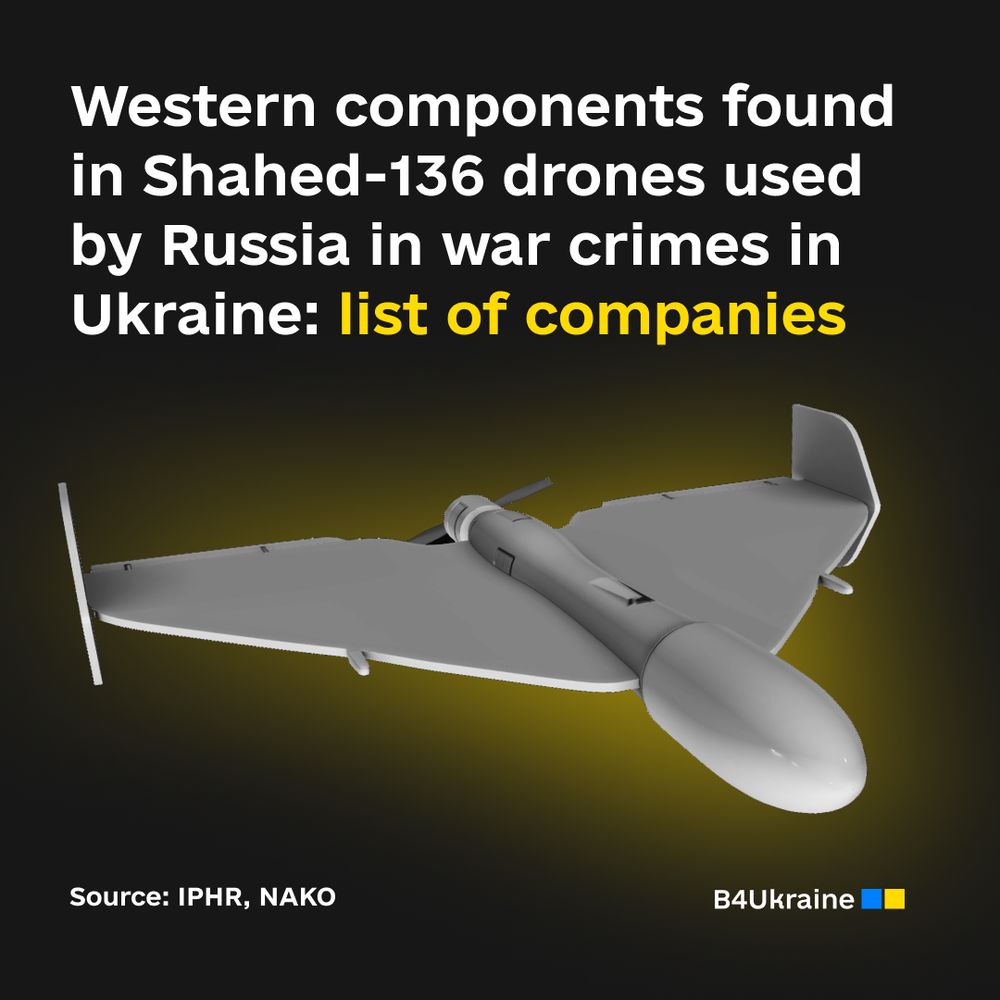
Researchers have established the names of Western companies whose components are used in producing Iranian Shahed-136 kamikaze drones, which Russia uses to attack Ukraine.
The B4Ukraine Coalition members International Partnership for Human Rights (IPHR) and the Independent Anti-Corruption Commission (NAKO) are among the authors of the report that examines ten attacks targeting residential buildings, schools and power plants.
The report finds that Russia’s Shahed-136 attacks are “intentionally aimed at the civilian population and infrastructure, with no tangible military advantage gained as a result of the attacks; the primary purpose is deemed to be terrorizing the civilian population.”
Multiple Shahed-136 fuselages analyzed contained a variety of components manufactured by mostly American companies as well as some Japanese, Canadian, and Swiss firms, ranging from microprocessors and semiconductors to ethernet transceivers and memory.
The list of companies is following: Adesto Technologies (USA), Analog Devices (USA), Freescale (USA), Hemisphere (USA), Hitec USA Group (USA), International Rectifier (USA), Marvell Technology (USA), Maxim Integrated (USA), Micrel Semiconductor (USA), Micron Technology (USA), Texas Instruments (USA), Murata Manufacturing (Japan), Tallysman (Canada), STMicroelectronics (Switzerland).
All firms named above were invited to respond to concerns about the supply of their products to Russia and Iran. Some of them condemned the Russian invasion and pledged to tighten control over the supply of their electronics.
For instance, a spokesperson for Marvell said: “Marvell is appalled that any of its products are used in Russian weapons. Marvell does not sell to the Russian military or government. We have a strong export compliance program and have no knowledge how these parts have found their way into Russia.”
The authors of the report do not allege any legal wrongdoing on the part of the companies who manufacture the components and do not suggest that they have any involvement in any sanctions evasion-related activity or supplying the Russian military.
Simon Papuashvili, Programme Director of IPHR, said: “The disheartening reality is that intermediaries adeptly exploit existing sanctions regimes, effortlessly uncovering loopholes. It is high time for Western companies to take proactive measures, exerting greater efforts to impede the procurement of their products by suspected war criminals who inflict terror upon countless innocent civilians in Ukraine.”
The report provides comprehensive recommendations across sanctions and export controls, including enforcement, corporate due diligence and know-your-customer procedures, as well as diplomatic coordination to effectively exploit Russia’s reliance upon Western components, described as its “Achilles heel.”
Olena Tregub, Executive Director of NAKO, said: “It is crucial to change this situation to effectively prevent further instances of war crimes and genocide in Ukraine.”